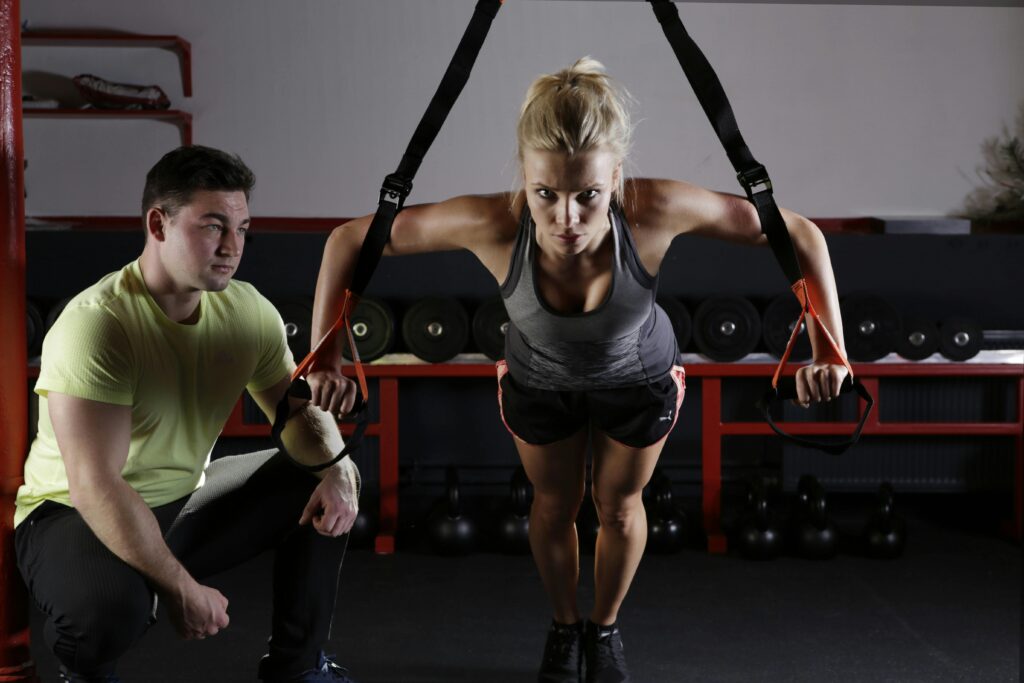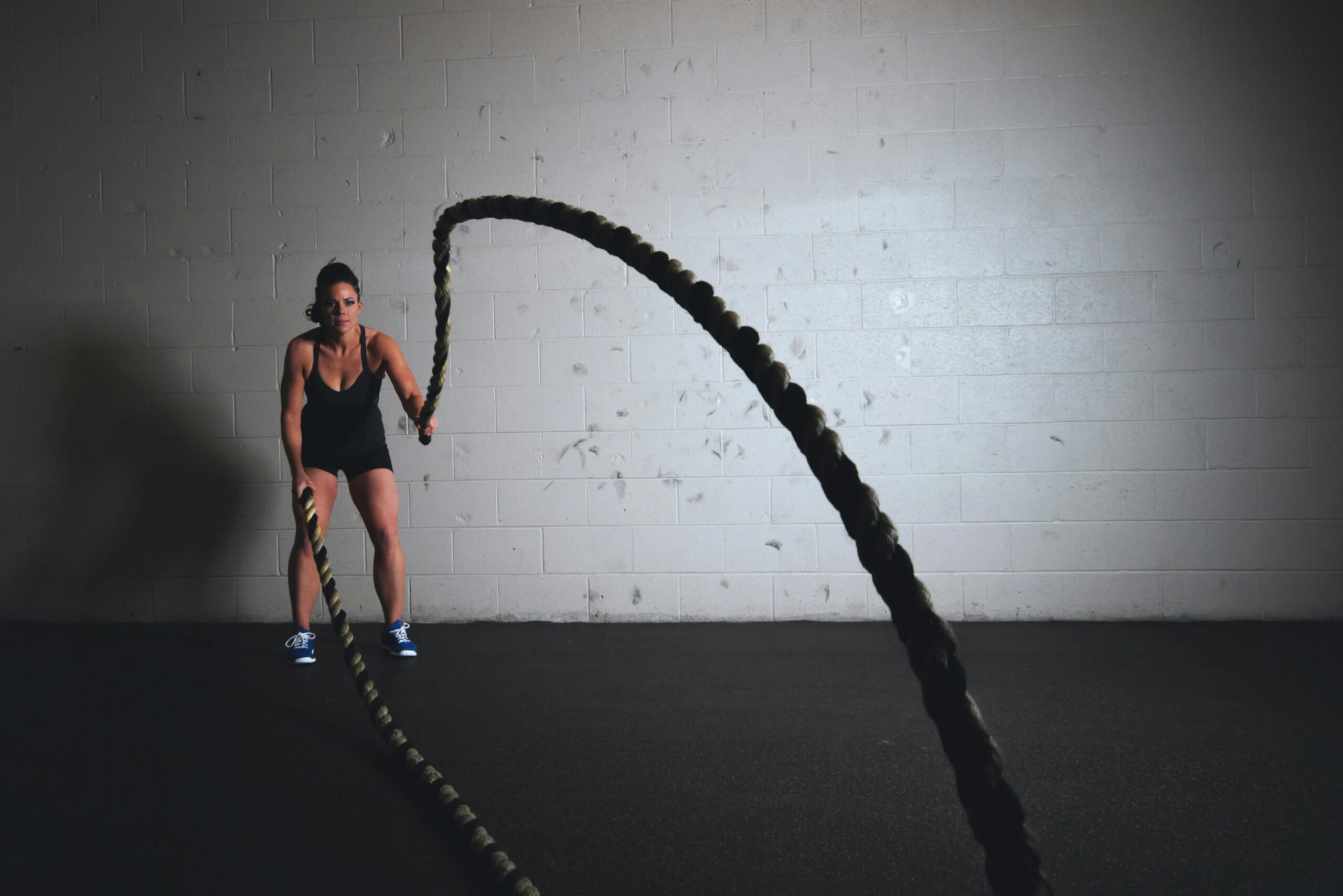Table of Contents
In today’s fast-paced world, maintaining a healthy lifestyle can seem like a daunting task. With so much information available, it’s easy to feel overwhelmed or unsure where to start. One of the most effective ways to lead a healthier life is through regular physical activity.
Fitness plays a crucial role in not only enhancing your physical health but also improving your mental well-being. In this blog post, we’ll explore the top 10 fitness tips to help you build and sustain a healthier lifestyle.
1. Set Clear Fitness Goals
Setting clear fitness goals is the first step toward achieving a healthier lifestyle. Goals give you direction and motivation, making it easier to track your progress and stay committed. To make your goals effective, use the SMART criteria: Specific, Measurable, Achievable, Relevant, and Time-bound.
For instance, rather than aiming to “get fit,” set a goal like “run a 5K in under 30 minutes within three months.” This goal is specific, measurable, achievable, relevant, and time-bound. By setting such precise goals, you can create a clear roadmap for your fitness journey, making it easier to monitor your progress and adjust your plan as needed.

2. Create a Balanced Workout Routine
A balanced workout routine is essential for overall fitness. Your routine should include a mix of cardio, strength training, and flexibility exercises. This approach ensures that you’re not only working different muscle groups but also improving your cardiovascular health and maintaining flexibility.
Cardio exercises such as running, cycling, or swimming increase your heart rate and improve cardiovascular endurance. Aim for at least 150 minutes of moderate-intensity or 75 minutes of high-intensity cardio per week.
Strength training helps build muscle mass, which in turn boosts your metabolism. Incorporate exercises like weightlifting, bodyweight exercises (push-ups, squats), or resistance band workouts into your routine. Aim for two to three strength training sessions per week.
Flexibility exercises such as stretching or yoga improve your range of motion and reduce the risk of injury. Incorporate flexibility exercises into your routine at least two to three times per week.
By creating a balanced workout routine, you ensure that you’re addressing all aspects of fitness, which contributes to overall health and well-being.
3. Prioritize Consistency
Consistency is key when it comes to fitness. It’s more beneficial to exercise regularly and moderately than to engage in sporadic intense workouts. Establishing a consistent routine helps build habits and makes exercise a natural part of your life.
To stay consistent, set a schedule that works for you and stick to it. Whether it’s early morning workouts or evening sessions, find a time that fits your lifestyle. Additionally, having a workout buddy can provide motivation and accountability, making it easier to stick with your routine.
Remember, even on days when you’re feeling less motivated, a short workout is better than none. Consistent effort over time leads to significant improvements in fitness and health.

4. Incorporate Strength Training
Strength training is a crucial component of any fitness plan. It involves using resistance to build muscle strength and endurance. Benefits of strength training include increased muscle mass, improved metabolic rate, and enhanced bone density.
Start with basic strength training exercises like squats, lunges, push-ups, and dumbbell exercises. As you become more comfortable, you can gradually increase the weight or resistance. Aim to include strength training in your routine at least two to three times a week, ensuring you give muscle groups time to recover between sessions.
For beginners, bodyweight exercises are a great starting point. As you progress, you can incorporate free weights or resistance bands for added intensity. Strength training not only improves physical appearance but also boosts overall functionality and performance.
5. Don’t Neglect Cardio Workouts
Cardiovascular workouts are essential for heart health and overall fitness. Cardio exercises increase your heart rate, improve lung capacity, and help burn calories. They play a significant role in weight management and overall endurance.
Include various forms of cardio in your routine to keep things interesting and challenging. Options include running, cycling, swimming, rowing, or even brisk walking. Aim for at least 150 minutes of moderate-intensity or 75 minutes of high-intensity cardio per week.
To make cardio more enjoyable, try different activities, set goals (like running a certain distance or time), or listen to music or podcasts. Consistent cardio workouts help improve cardiovascular health, boost energy levels, and enhance overall well-being.

6. Focus on Nutrition
Nutrition is a fundamental aspect of a healthy lifestyle. Proper nutrition supports your fitness goals and overall health. A balanced diet provides the energy needed for workouts and aids in recovery and muscle repair.
Focus on consuming a variety of nutrient-dense foods, including lean proteins, whole grains, fruits, vegetables, and healthy fats. Protein is essential for muscle repair and growth, so include sources like chicken, fish, beans, and legumes in your diet.
Carbohydrates provide energy for workouts, so opt for complex carbs like quinoa, brown rice, and whole-grain bread. Healthy fats, found in avocados, nuts, and olive oil, are also important for overall health.
Stay hydrated by drinking plenty of water throughout the day, especially before, during, and after workouts. Proper hydration supports optimal performance and recovery.
7. Stay Hydrated
Hydration is often overlooked but is crucial for maintaining overall health and fitness. Water plays a vital role in regulating body temperature, transporting nutrients, and aiding in digestion.
Aim to drink at least 8 cups (64 ounces) of water per day, and increase your intake if you’re engaging in intense workouts or exercising in hot conditions. Dehydration can lead to fatigue, decreased performance, and muscle cramps, so staying hydrated is essential.
To ensure you’re drinking enough water, carry a water bottle with you throughout the day and sip regularly. Additionally, consume water-rich foods like fruits and vegetables to contribute to your hydration needs.
8. Get Enough Rest and Recovery
Rest and recovery are integral parts of any fitness regimen. Overtraining can lead to burnout, injury, and decreased performance. Allowing your body to recover is essential for muscle repair and overall health.
Incorporate rest days into your weekly routine to give your muscles time to recover. On rest days, engage in low-impact activities like walking or gentle stretching. Adequate sleep is also crucial for recovery, as it helps repair muscle tissue and replenish energy levels.
Aim for 7-9 hours of quality sleep each night to support overall health and fitness goals. Creating a relaxing bedtime routine and maintaining a consistent sleep schedule can improve sleep quality.

9. Listen to Your Body
Listening to your body is vital for preventing injuries and ensuring long-term success. Pay attention to signs of overtraining, such as persistent fatigue, soreness, or joint pain.
If you experience pain during exercise, stop and assess whether it’s a sign of injury or just normal muscle soreness. Modify your workouts as needed and consult a healthcare professional if you have persistent or severe pain.
By tuning into how your body feels and adjusting your workouts accordingly, you can avoid injuries and make your fitness journey more enjoyable and sustainable.
10. Stay Motivated and Have Fun
Staying motivated is key to maintaining a fitness routine. Finding joy in your workouts makes it easier to stick with your plan over the long term.
Choose activities that you enjoy, whether it’s dancing, hiking, or playing a sport. Setting small, achievable milestones and celebrating your progress can also boost motivation. Consider joining fitness classes or groups to add a social element to your routine.
Remember, fitness should be enjoyable, not a chore. By incorporating fun activities and setting rewarding goals, you’ll be more likely to stay committed and make exercise a lifelong habit.
Conclusion
Incorporating these top 10 fitness tips into your routine can significantly enhance your overall health and well-being. From setting clear goals and creating a balanced workout routine to focusing on nutrition and staying motivated, each tip plays a vital role in achieving a healthier lifestyle.
Start by implementing these tips gradually and see what works best for you. Remember, consistency is key, and even small changes can lead to significant improvements over time. Share your experiences and progress in the comments, and feel free to reach out with any questions or additional tips you might have.


